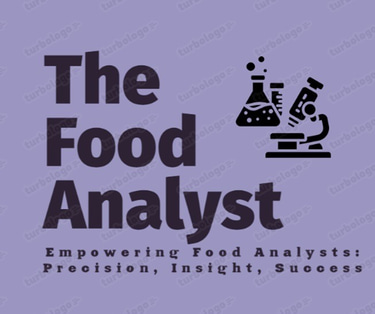"Empowering food analysts and laboratory professionals with expert insights, ISO 17025 resources, regulatory updates, industry testing requirements, training, and career opportunities for excellence in food testing."
ISO 17025:2017 : Sample Receiving Checklist for Food Laboratories
This article provides a comprehensive ISO 17025 sample receiving checklist for food laboratories, ensuring proper documentation, handling, and storage of samples. It helps maintain regulatory compliance, traceability, and accuracy in food safety testing while reducing errors. Learn how to implement best practices and improve laboratory efficiency with a structured approach.
ISO 17025
3/9/20253 min read
Introduction
In food testing laboratories, the integrity of test results begins at the very first step—sample receiving. Under ISO/IEC 17025:2017, which sets the standard for laboratory competence, ensuring proper sample handling, documentation, and storage is crucial for maintaining accurate and reliable results. Any errors in this process can lead to compromised test results, regulatory non-compliance, or even legal issues.
A well-structured sample receiving checklist helps laboratories comply with ISO 17025 Clause 7.4 (Handling of Test and Calibration Items) and ensures proper traceability, storage, and quality management.
Why is Sample Receiving Important?
Sample receiving is a critical control point in food testing laboratories because:
It ensures sample traceability and integrity.
It prevents contamination, degradation, or mix-ups.
It ensures compliance with regulatory and accreditation requirements.
It serves as a primary record for audits and quality assurance.
Failure to properly receive and handle samples can lead to erroneous test results, financial losses, and reputational damage for the laboratory.
ISO 17025-Compliant Sample Receiving Checklist
1. Sample Receipt Information
Record the date and time of receipt to maintain sample traceability.
Include the name and signature of the sample receiving personnel for accountability.
Document client or supplier information, including name, address, and contact details.
Ensure the sample submission form or test request form is provided for verification.
Assign a unique sample identification code (Lab ID) for internal tracking.
2. Sample Description & Identification
Specify the sample type (food, water, ingredient, etc.).
Indicate the physical form (solid, liquid, powder, etc.).
Measure and document the quantity, volume, or weight of the sample to ensure suitability for testing.
Record the batch or lot number, if applicable.
Note the manufacturing and expiry date, if available, for perishable samples.
Include the sampling date and sampling point, if provided by the client.
Identify any preservation methods used to ensure sample stability.
3. Sample Condition & Packaging (ISO 17025 Clause 7.4.3)
Check that the sample packaging is intact and properly sealed.
Ensure there is no physical damage, contamination, or leakage.
Verify that the sample is correctly labeled with all required details.
Document the temperature condition at the time of receipt, especially for cold-chain samples.
Confirm that transport conditions were maintained as required by regulatory guidelines.
4. Documentation & Compliance (ISO 17025 Clause 7.4.2)
Complete the chain of custody form, if required.
Ensure that the testing requirements and parameters are clearly stated by the client.
Check if regulatory or accreditation requirements (such as FSSAI, CODEX, ISO) are noted.
Confirm that client instructions or specific test methods are mentioned.
Report any deviations or non-conformities to the Quality Assurance (QA) Manager.
5. Sample Storage & Handling (ISO 17025 Clauses 6.4.4 & 7.4.4)
Store the sample in appropriate conditions immediately upon receipt (frozen, refrigerated, ambient, etc.).
Follow sample handling instructions as per standard operating procedures.
Log sample entry into the Laboratory Information Management System (LIMS) or sample register.
Send a receipt confirmation to the client if applicable.
Properly store a reference or retained sample, if required.
6. Acceptance & Rejection Criteria (ISO 17025 Clause 7.4.5)
Ensure the sample meets laboratory acceptance criteria.
Notify the client immediately if the sample is non-compliant due to improper packaging, degradation, or insufficient quantity.
Generate a non-conforming sample report and have it signed off by the laboratory manager if applicable.
Common Mistakes & How to Avoid Them
Even with a checklist in place, laboratories may encounter issues. Here are some common problems and how to prevent them:
1. Incomplete Sample Documentation
Issue: Missing test request forms or unclear client instructions.
Solution: Ensure submission forms are fully completed before accepting the sampe.
2. Sample Contamination or Leakage
Issue: Poor packaging or handling leading to compromised sample integrity.
Solution: Strictly enforce packaging integrity checks and maintain proper storage conditions.
3. Temperature Abuse
Issue: Cold-chain samples arriving at improper temperatures.
Solution: Use calibrated temperature loggers and document transport conditions upon receipt.
4. Sample Misidentification
Issue: Improper labeling or mix-ups.
Solution: Implement a barcode-based Laboratory Information Management System (LIMS).
Final Sample Receiving Checklist
Record date and time of receipt.
Document client or supplier information.
Verify test request form and assign a unique ID.
Check sample type, quantity, batch number, and expiry date.
Ensure proper packaging and label integrity.
Record temperature at receipt and confirm transport conditions.
Complete chain of custody form if required.
Log sample in LIMS and store appropriately.
Notify the client if any issues arise.
Reject non-conforming samples as per ISO 17025 guidelines.
© 2025. All rights reserved. All content on this website is the intellectual property of The Food Analyst. Unauthorized use or reproduction is prohibited.
Contact Us
The Food Analyst Team
We are available in multiple locations:
Bangalore | Delhi | Mumbai
Email for editorial: contact@foodanalyst.in
For advertisement: inquiryfoodanalyst@gmail.com
